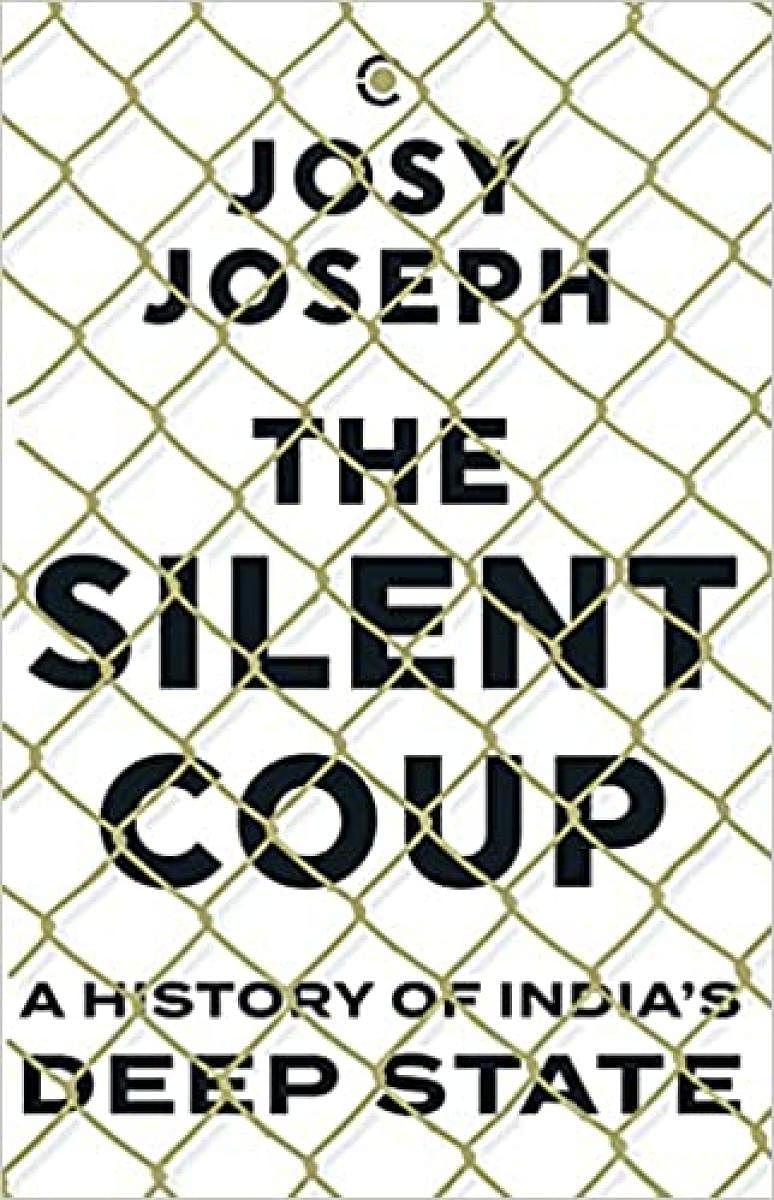
Prime Minister Narendra Modi may have termed India as the 'mother of all democracies' at the UN General Assembly but the nation’s democratic standing has been on a steady decline.
Recent global assessment of India as only ‘partly free’ or as an ‘electoral autocracy’ are none too flattering either. Democratic institutions are under threat as never before. Signs are ominous with the use of draconian laws against journalists and anyone critical of the ruling establishment. While mature democracies have safeguards to protect democratic institutions, India lags behind in such scrutiny.
Grim picture
You don't need a coup to subvert democracy; it can be done by a coterie of the ruling elite by manipulation of the non-military arm of the security establishment, argues a new book The Silent Coup: A History of India’s Deep State. Authored by noted investigative journalist Josy Joseph, the book traces the corrosion of the nation's democratic ethos. Based on over two decades of reporting on the security establishment, terrorism and insurgencies, the volume paints a grim picture. State police forces, intelligence agencies, federal investigation agencies and the tax department have become handy tools of the ruling elite to intimidate and harass adversaries and suppress dissent. ''They raid, harass, eavesdrop, torture and kill.''
Joseph contends that the anti-terrorist operations have given the security forces unbridled powers leading to largescale human rights violations. Illegal arrests, fake encounters, custodial torture and killings, framing of innocents as terrorists, fake narratives all saw a sharp rise in the war on terror. Citing the well-entrenched anti-Muslim bias of the security forces and their negligible representation in security forces, the book argues that this has stymied the intelligence gathering from the minority community. This is more pronounced in the hostile environment of the Kashmir valley.
Dirty secrets
The narrative moves from Mumbai to Gujarat, Delhi to Punjab, Kashmir to the North-East. Overwhelmed by the sophistication of insurgencies in 1980s and 1990s, the security forces found shortcuts to face the situation. The Silent Coup digresses into Gujarat riots to examine the role of security organisations. On the security architecture that Modi shaped for Gujarat, the author says: ''He was not inventing anything new....only he was more efficient, more ruthless and less afraid of public opinion.'' In reports submitted by the Gujarat police, the CBI and official commissions, the state police is accused of staging encounters, cold-blooded murders and selective targeting of Muslims.
The story of Wahid, a Mumbai school teacher, pervades the first part of the book. He is among the many innocents picked up on suspicion of being a terrorist. First arrested for links to the 9/11 attacks, he was repeatedly tortured in custody. His detention from 2001 to 2013 reflects poorly on the Indian security establishment and its ways. Delhi resident Irshad Ali's case is more sinister. He lost 10 years of his life before a CBI probe exonerated him. He was a victim of a police plan — '' create a fake terrorist and arrest him, ruin his life and show him off to the public as a success of the war on terror.'' Joseph considers this model one of the dirty secrets of the Indian security establishment.
Joseph recounts major intelligence failures on Mumbai terror attacks and the Punjab militancy. He lays bare the disastrous consequence of sending the Indian army to Sri Lanka in 1987 without proper intelligence. He quotes Major General Harkirat Singh, commander of the 54 Infantry Division: “They had no intelligence to give me about the terrain or the enemy. I had to buy a tourist map in Hyderabad before I went into operations.”
Shocking falsehoods
The book reels out many cases of shocking falsehoods and outright murders by rogue elements in the security agencies. What emerges is a corrupt, opaque system sans accountability with some sections keen to serve political agendas or business interests rather than national interests. Fake news is manufactured to suit political masters and handed on a platter to a pliant media.
The book throws light on many high-profile cases such as the killing of former Gujarat Home Minister Haren Pandya as well as the Sohrabuddin, Ishrat Jahan and Justice Loya cases that followed. This enables the reader to have a clear perspective on the conduct of police, the course of the investigations and the personas involved.
The chapter 'A Valley in Flames' gives a bird's eye view of militancy and its fallout. Joseph says "the Indian army has lost more soldiers fighting insurgency in the Valley than in war with other nations.'' This is his take on the dreaded interrogation centres in the Valley: "...the secret compounds of the interrogation centres tarnished the credentials of Indian democracy, while feeding the ranks of militancy.'' He believes the rigged 1987 elections in the state scuttled any chance of reconciliation.
A scathing indictment of the police, intelligence agencies and the submissive media, this well-researched book is a must read for everyone who is concerned about threats to Indian democracy.